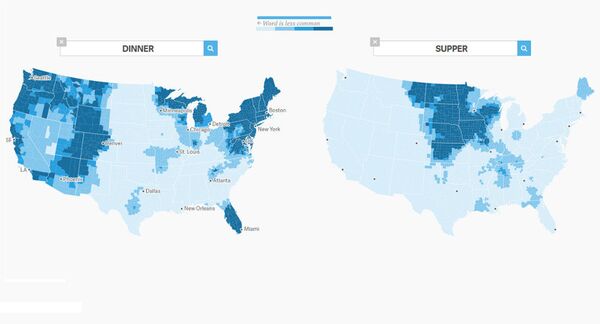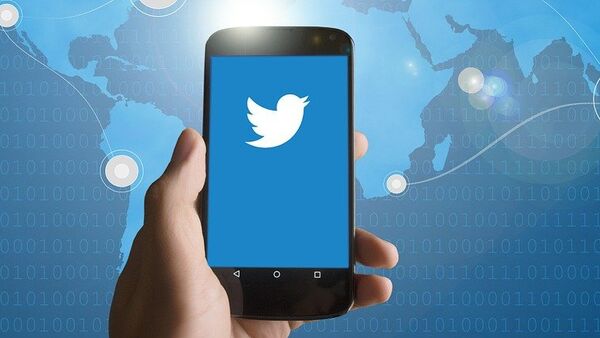Around seven million social media users in the US have had their tweets mapped by language experts in the UK and US, looking at how migration patterns match up with different dialects around the country in what's called the Great American Word Mapper.
"With the growth of social media across the globe, you'd be forgiven for thinking that the world is shrinking — but different dialects are there," Dr. Andrea Nini from Manchester University told Sputnik.
The Great American Word Mapper is live!https://t.co/0H3ol6BcDc
— Andrea Nini (@and_nini) December 16, 2016
Dialects
The Great American Word Mapper took each tweet from 2014 to plot geographic patterns.
"What we found was that there was some sort of double structure with super dialects and micro dialects in different geographical regions," Dr. Nini explained.
"There are commonalities between the east and west coast of the US that you would not have found in the past and there are some dialects which are still localized.
"It's very difficult for someone to change the way they speak. A change in language is affected by the close network of people we interact with on a daily basis."

The tool uses work conducted by linguists from the University of Manchester and Aston University in Birmingham, UK and geographers from the University of South Carolina to look at the way migration matches up with different dialects.
"Essentially, these studies reveal that the pathway of language follows communities with similar ethnicity, class or background, for example, some dialect 'idents' of Black African American communities are more common in the south, in the area where they live, and do not seem to spread outside of that," Andrea Nini told Sputnik.
Lost for words — Twitter posts highlight differences in American vocabulary https://t.co/8fKaFe7pUa
— Andrea Nini (@and_nini) January 26, 2017
The Word Mapper app has enabled linguistics to look at diversity and cultural differences across the US. Researchers noted in particular, that three southern states, Mississippi, Alabama and Georgia, tweeted the word "God" more than any other state.
"You don't know me tho?"
— Ben Specht (@benspecht44) February 4, 2017
"God does tho"
— best pick up line west of the Mississippi
"The level of detail we have right now and the possibilities are unprecedented. Possessing all the data on the World Mapper on a country level, where we can go into minute detail, is everything a linguist dreams of," Dr. Nini said.
Dr. Andrea Nini cites the word "bigly" as an example of how a word can be used and metamorphosed on social media, "becoming a word in it's own right."
Donald Trump, getting checked and balanced, BIGLY!
— Steve Brusatte (@SteveBrusatte) February 5, 2017
Bigly thankful to President Trump for introducing Democrats and liberals to federalism.
— Bryan McGrath (@ConsWahoo) February 8, 2017
"The word 'bigly' for example — that's down to US President Donald Trump. He said 'big league' but many people misheard and it became a word in its own right, mocking Mr. Trump," Dr. Nini said.
When I finish brushing the cat I'm going to have a huge Trump wig. Bigly. pic.twitter.com/szEuKVWA0k
— T.M. Thomas (@tmthomas) January 30, 2017
"Being able to use Twitter is a 'gift for linguists,' " he says, adding that the research is possible because tweets are typed into smartphones equipped with GPS.
"We hope people will continue to do that, because it's an invaluable source of information for different dialects," Dr. Nini concluded.


